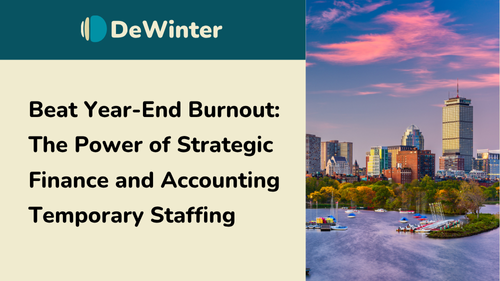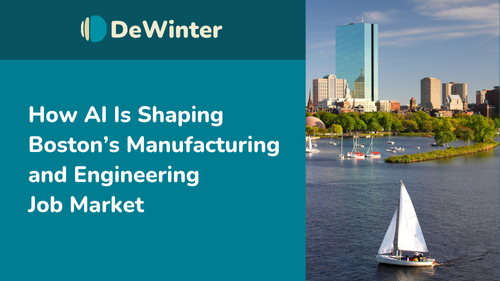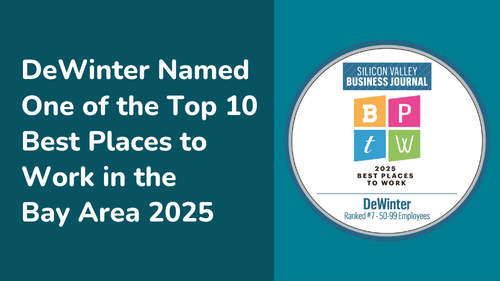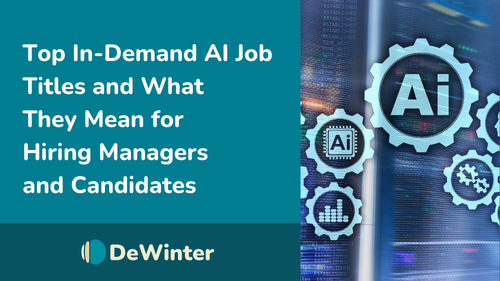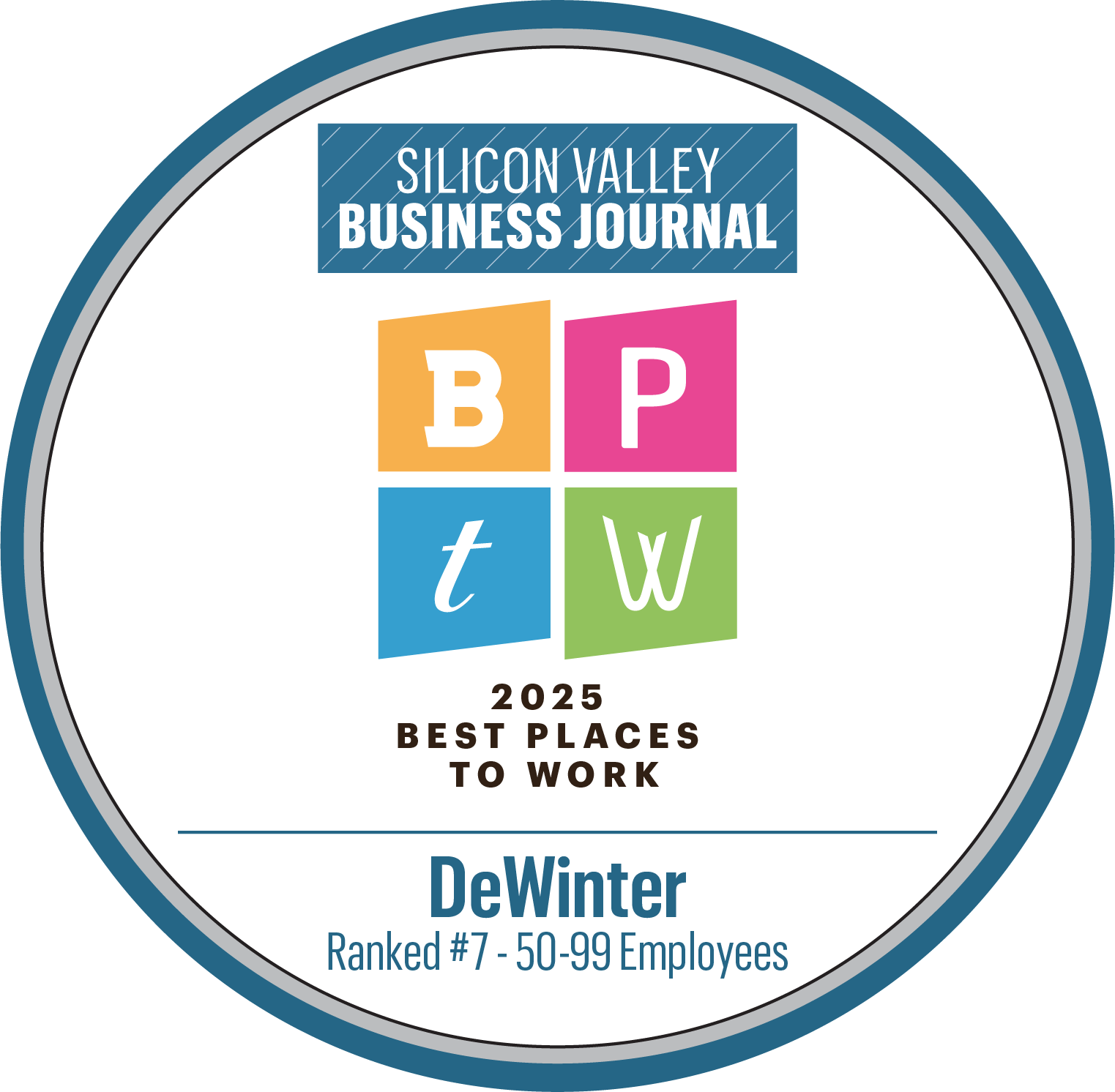Contract vs. Full-Time Tech Roles: Which Is Right for Your Business?
Hiring the right tech talent is one of the most critical decisions a company can make, especially in today’s competitive and fast-moving job market.
Whether you’re scaling your team for a new project, filling gaps in specialized skills, or looking for long-term leadership, choosing between
contract, contract-to-hire, and full-time employees can significantly impact your organization’s success.
Each hiring model comes with its own advantages and trade-offs, and the best choice depends on your company’s project needs, budget, long-term goals, and workforce strategy. In this blog, we’ll explore the key differences between these hiring models, the pros and cons of each, and how to determine the best fit for your business.

Contract Roles: Agility and Specialized Expertise
Contract roles are temporary positions filled by tech professionals who work on a short-term basis, typically for 3 to 12 months. These workers are either independent contractors or employed through a staffing firm, providing companies with flexibility and access to specialized skills.
Pros of Hiring Contract Tech Talent:
✅
Faster Hiring Process – Contractors can be onboarded quickly, helping businesses meet urgent project deadlines.
✅
Cost-Effective for Short-Term Needs – Companies save on benefits, payroll taxes, and long-term commitments.
✅
Access to Highly Specialized Skills – Contractors often bring niche expertise in emerging technologies.
✅
Scalability – Businesses can ramp up or down based on project demands without the burden of permanent headcount.
Cons of Hiring Contract Tech Talent:
⚠️
Less Long-Term Stability – Contractors may leave after their assignment, requiring frequent rehiring.
⚠️
Limited Cultural Integration – Short-term hires may not fully align with company culture or long-term strategy.
⚠️
Higher Hourly Costs – While cost-effective in the short term, hourly contract rates are often higher than full-time salaries.
When to Choose Contract Hiring:
- You need specialized expertise for a short-term project.
- Your company has variable workloads and needs flexibility.
- You’re launching a new product or system and need expert support.
- You want to test new technologies before committing to full-time resources.
What Are The Main Differences Between Contract and Full-Time Tech Jobs?
Trying to decide whether a contract or full-time hire is the right move for your business? It can be tricky, as both options bring different benefits to the table. To help you get a quick handle on the pros and cons, we've put together a handy table. Take a look below for an at-a-glance overview of how these two hiring models stack up against each other.
| Feature | Contract | Full-Time |
|---|---|---|
| Cost | Higher hourly rate; lower long-term cost (no benefits, taxes, or overhead) | Lower hourly rate; higher long-term cost (benefits, payroll taxes, office space) |
| Flexibility | High; easy to scale workforce up or down for specific projects | Low; challenging to change headcount based on fluctuating needs |
| Hiring Time | Fast; contractors can be onboarded quickly to meet urgent project deadlines | Slower; process can take weeks or months with more extensive vetting |
| Skill Set | Access to specialized, niche expertise for specific projects | Generalist or specialized skills with long-term investment in development |
| Commitment | Short-term; project-based with a defined end date | Long-term; committed to the company's mission and growth |
| Culture & Loyalty | Limited cultural integration; less long-term loyalty | Stronger cultural fit and loyalty; more invested in the company |
| Knowledge Transfer | Can create a knowledge gap once the contract ends | Knowledge retention remains within the company |
| Training & Onboarding | Minimal training required; hired for specific, existing expertise | Longer ramp-up period for full integration into company systems |
Contract-to-Hire: A Trial Period Before Commitment
Contract-to-hire (C2H) is a hybrid model where a candidate starts as a contractor and, after a set period (usually 3-6 months), may transition into a full-time employee. This model allows both the company and the candidate to assess fit before making a long-term commitment.
Pros of Contract-to-Hire Roles:
✅
Reduces Hiring Risk – Employers can evaluate a candidate’s performance, cultural fit, and skills before extending a full-time offer.
✅
Speeds Up Hiring – It’s often easier to secure contract talent than direct hires, helping businesses fill roles quickly.
✅
Flexible Budgeting – Companies can manage costs by hiring on a contract basis first and converting top talent to full-time as budgets allow.
✅
Stronger Candidate Engagement – Employees view C2H as an opportunity for long-term stability, making them more invested in their work.
Cons of Contract-to-Hire Roles:
⚠️
Not Always a Guarantee – Some candidates may be reluctant to accept a C2H role if they prefer immediate full-time employment.
⚠️
Limited Benefits Initially – Contractors typically don’t receive full employee benefits until conversion.
⚠️
Potential for Losing Talent – If a contractor finds another full-time offer before conversion, you may have to restart the hiring process.
When to Choose Contract-to-Hire Hiring:
- You want to evaluate a candidate’s fit before committing to a full-time hire.
- Your company has a limited hiring budget but may have more flexibility in the near future.
- You need to fill a permanent role quickly but don’t have time for a lengthy hiring process.
- You’re building a new department or function and want to test the role before fully staffing it.
Full-Time Hiring: Long-Term Investment in Your Workforce
Full-time employees are permanent team members who receive salaries, benefits, and opportunities for growth within your company.
This model is best for businesses looking to build long-term teams and invest in company culture, employee development, and sustained innovation.
Pros of Hiring Full-Time Tech Talent:
✅
Long-Term Stability – Full-time employees are committed to the company’s growth and success.
✅
Stronger Cultural Fit – They integrate fully into the company culture, mission, and team dynamics.
✅
Greater Knowledge Retention – Investing in full-time hires ensures that key expertise remains within your organization.
✅
Employee Loyalty & Engagement – Full-time workers are more likely to stay engaged and motivated when offered growth opportunities.
Cons of Hiring Full-Time Tech Talent:
⚠️
Higher Long-Term Costs – Salaries, benefits, and overhead costs add up over time.
⚠️
Longer Hiring Process – Recruiting and onboarding full-time employees can take
weeks or months.
⚠️
Less Flexibility – If your project’s needs change, reducing permanent headcount can be challenging.
When to Choose Full-Time Hiring:
- You need long-term team members who will grow with your company.
- Your business has stable and predictable workloads requiring continuous support.
- You’re building company culture and investing in employee development.
- You need leadership and strategic thinkers to drive innovation.
Making the Right Choice for Your Business
Choosing between contract, contract-to-hire, and full-time hiring depends on your company’s immediate needs, budget, and long-term workforce strategy.
- If you need flexibility, speed, and niche expertise, contract hiring is the best option.
- If you want to test a candidate’s fit before committing, contract-to-hire is a smart approach.
- If you’re building a stable, long-term team, full-time hiring is the way to go.
Check out our case studies for some real-world examples of custom tech staffing solutions that helped our clients meet their project goals:
- DeWinter Creates ERP Solution for Executive Coaching Platform
- DeWinter Places Cyber Risk Analyst at Major Computing Platform Company
- DeWinter Accelerates iOS Modernization Plan for Bay Area Tech Company
The key to success is aligning your hiring strategy with your business goals. Whether you’re scaling for a short-term project or investing in long-term innovation, the right hiring model can help you stay competitive and agile in the fast-moving tech industry.
Need help finding top tech talent? Our team specializes in contract, contract-to-hire, and full-time placements and
project delivery solutions, ensuring you get the right tech talent for the right goals. Let’s connect and build your dream team today!
Search Technology Jobs
Find the Best Career Opportunities in the Bay Area, Boston, and Beyond.


